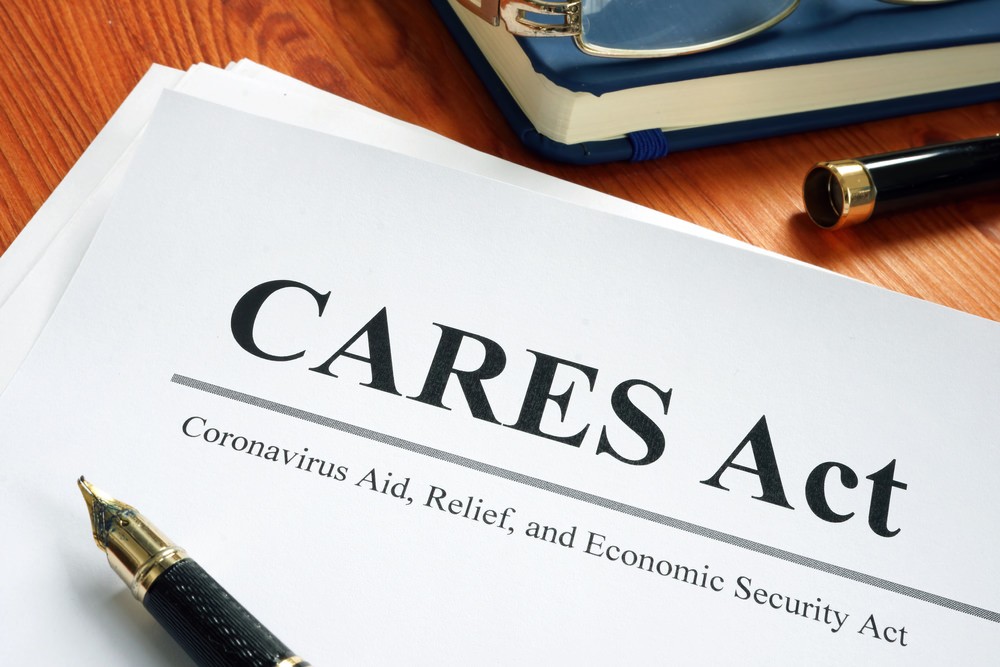CARES Act Distribution Information
Under the CARES Act, individuals were eligible to take $100,000 of coronavirus-related distributions from retirement plans. In addition to the distributions being free of penalty there are also accommodations with the IRS for claiming the income as well as repayment of the distributions.
The distributions generally are included in income ratably over a three-year period, starting with the year in which you receive your distribution. For example, if you receive a $9,000 coronavirus-related distribution in 2020, you would report $3,000 in income on your federal income tax return for each of 2020, 2021, and 2022. However, you have the option of including the entire distribution in your income for the year of the distribution.
You may repay all or part of the amount of a coronavirus-related distribution to an eligible retirement plan, provided that you complete the repayment within three years after the date that the distribution was received. If you repay a coronavirus-related distribution, the distribution will be treated as though it were repaid in a direct trustee-to-trustee transfer so that you do not owe federal income tax on the distribution.
If, for example, you receive a coronavirus-related distribution in 2020, you choose to include the distribution amount in income over a 3-year period (2020, 2021, and 2022), and you choose to repay the full amount to an eligible retirement plan in 2022, you may file amended federal income tax returns for 2020 and 2021 to claim a refund of the tax attributable to the amount of the distribution that you included in income for those years, and you will not be required to include any amount in income in 2022.
Make note of your distributions and repayments and communicate with your CPA about these details as most brokerage firms will not be indicating CARES related distributions on 1099R’s and subsequently following repayments on 5498’s.
CARES Act Economic Income Payment
If you were eligible and received an economic income payment in part or were eligible and didn’t receive the payment under the CARES Act you should file for a Recovery Rebate Credit (IRC Notice 1444) when you file your 2020 tax return. Eligible individuals can claim the Recovery Rebate Credit on their 2020 Form 1040 or 1040-SR. Generally, this credit will increase the amount of your tax refund or lower the amount of the tax you owe.
You do not need to complete any information about the Recovery Rebate Credit on your 2020 Form 1040 or 1040-SR if your Economic Impact Payment in 2020 was $1,200 ($2,400 if married filing jointly for 2020) plus $500 for each qualifying child you had in 2020. You received all your recovery rebate in 2020.
California
In general, California should follow conformity with the IRC- Economic impact payments: Economic impact payments that individuals receive from the federal government under the CARES Act aren’t subject to California income tax.
- Increased unemployment compensation benefits: The emergency increase in unemployment compensation benefits that individuals receive under the CARES Act aren’t subject to California income tax.
- Early withdrawal penalty waivers: California conforms to the federal waiver of early withdrawal penalties for distributions from qualified retirement accounts under the CARES Act.
About the author
Athena K. Stone has been with Attentive Investment Managers, Inc. since 2003, is an Investment Advisor and the Chief Compliance Officer for the company. Mrs. Stone earned her Chartered Retirement Planning Counselor (CRPC) designation in 2010 from the College for Financial Planning. She received the designation of Accredited Investment Fiduciary (AIF) from Fi360 in 2011. She earned her Bachelor of Arts Degree in Organizational Leadership from Brandman University in 2012 and her Master of Science in Financial Planning and Designation of MPAS (Master Planner Advanced Studies) from the College for Financial Planning in 2018.
By accepting you will be accessing a service provided by a third-party external to https://www.attentiveinv.com/

Comments